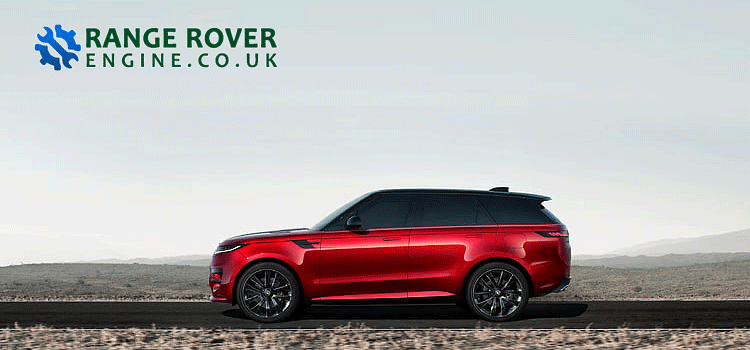How Does The Range Rover 2.0 Engine Represent Innovation In The Automotive Industry?

The automotive industry has witnessed remarkable advancements in technology and engineering over the past few decades. Among these innovations, the Range Rover 2.0 engine stands out as a prime example of how modern engineering is pushing the boundaries of performance, efficiency, and sustainability. We explores how the Range Rover 2.0 engines exemplifies innovation through its cutting-edge technology, design, and features. We will delve into various aspects, including engine performance, fuel efficiency, environmental considerations, and more, to understand how this engine represents a significant leap forward in automotive technology.
Advanced Turbocharging Technology
The Range Rover 2.0 engine is equipped with state-of-the-art turbocharging technology, which plays a crucial role in enhancing both performance and efficiency. Turbocharging increases the engine’s power output by forcing more air into the combustion chamber, allowing for more fuel to be burned and thus generating more power. This technology not only boosts engine performance but also improves fuel efficiency by enabling the engine to deliver greater power without the need for a larger, less efficient engine. The Range Rover 2.0 engine’s turbocharger is finely tuned to provide a seamless driving experience, making it a standout feature in the realm of advanced automotive technology.
Cutting-Edge Fuel Injection Systems
Another significant innovation in the Range Rover 2.0 engine is its advanced fuel injection system. This system is designed to optimize fuel delivery and combustion efficiency, which translates to better performance and lower emissions. By using precise fuel injection techniques, the engine can achieve optimal air-fuel mixtures, enhancing both power output and fuel economy. The sophisticated fuel injection technology in the Range Rover 2.0 engine represents a major advancement over traditional systems, demonstrating a commitment to high performance and environmental responsibility.
Efficient Engine Management and Control
Modern engines require sophisticated management and control systems to optimize performance and efficiency. The Range Rover 2.0 engine features an advanced engine management system that continuously monitors and adjusts various parameters to ensure optimal operation. This system uses sensors and electronic control units (ECUs) to manage fuel injection, ignition timing, and other critical functions. By constantly adapting to driving conditions and engine performance, the management system enhances both power and efficiency, showcasing the innovative approach of Range Rover in engine technology.
Enhanced Environmental Performance
In an era where environmental concerns are at the forefront of automotive design, the Range Rover Engine incorporates several features aimed at reducing its ecological footprint. The engine is designed to meet stringent emission standards, utilizing advanced technologies such as catalytic converters and particulate filters to minimize harmful emissions. Additionally, the engine’s fuel efficiency improvements contribute to lower overall emissions by reducing the amount of fuel consumed. The focus on environmental performance underscores Range Rover’s commitment to sustainability and innovation in their engine design.
Dynamic Driving Modes and Adaptability
One of the standout features of the Range Rover 2.0 engine is its ability to adapt to different driving conditions through various driving modes. The engine’s dynamic driving modes allow drivers to select settings that optimize performance for specific scenarios, such as off-road driving, highway cruising, or fuel-efficient city driving. This adaptability ensures that the engine delivers the best possible performance in any situation, highlighting Range Rover’s innovative approach to enhancing the driving experience. The ability to tailor engine performance to different conditions demonstrates a sophisticated understanding of driver needs and preferences.
Integration with Hybrid Technology
As the automotive industry increasingly embraces hybrid technology, the Range Rover 2.0 engine is designed to seamlessly integrate with hybrid systems. This integration allows for improved fuel efficiency and reduced emissions by combining the engine’s performance with electric propulsion. The hybrid technology in the Range Rover 2.0 engine enhances overall efficiency and driving dynamics, representing a significant advancement in automotive engineering. This integration reflects a forward-thinking approach to combining traditional engine performance with cutting-edge hybrid technology.
Advanced Materials and Construction
Innovation in engine design also extends to the materials and construction techniques used in the Range Rover 2.0 engine. The engine is constructed using lightweight, high-strength materials that contribute to improved performance and fuel efficiency. These advanced materials not only reduce the overall weight of the engine but also enhance its durability and longevity. The use of innovative construction techniques demonstrates Range Rover’s commitment to engineering excellence and the pursuit of high-performance, efficient engines.
Future-Proofing and Technological Advancements
The Range Rover 2.0 engine is designed with future technological advancements in mind, ensuring that it remains relevant and competitive in the evolving automotive landscape. The engine’s modular design and compatibility with emerging technologies allow for easy upgrades and enhancements. This future-proofing approach reflects a strategic vision for maintaining cutting-edge performance and efficiency in the face of ongoing technological developments. By anticipating future trends and incorporating adaptable features, Range Rover demonstrates its commitment to long-term innovation and excellence.
Conclusion
The Range Rover 2.0 engine represents a significant achievement in automotive innovation, showcasing advancements in turbocharging technology, fuel injection systems, engine management, and environmental performance. Its dynamic driving modes, hybrid integration, and use of advanced materials further underscore its role as a leader in modern engine design. As the automotive industry continues to evolve, the Range Rover 2.0 engine stands as a testament to the pursuit of excellence, efficiency, and sustainability. Whether considering an engine replacement or exploring reconditioned engines, the innovations in the Range Rover 2.0 engine set a high standard for the future of automotive technology, demonstrating a commitment to performance, environmental responsibility, and cutting-edge engineering.


